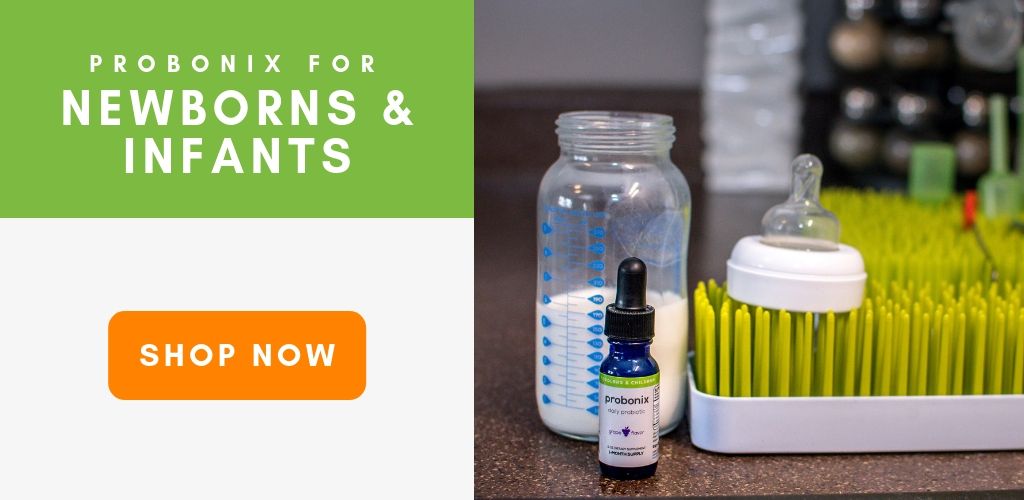As a parent, you should care because it could have major health implications for your child. Formula fed babies do not get any of the probiotics found in breast milk without additional supplementation. Without this, they may have more bad bacteria and less healthy bacteria like Lactobacillus and Bifidobacterium in their intestines. Probiotics can help repopulate the intestines with good bacteria.
Formula fed babies have also been shown to have a much higher rate of NEC than breast fed babies.
A study conducted in March 2015 by Benor S et al tested the effect of probiotic supplementation in mothers of very low birth weight infants.1 This study placed mother and infant pairs on treatment plans that included regular doses of Lactobacillus acidophilus and Bifidobacterium lactis within 72 hours of giving birth until they were discharged. A second group of mother and infant pairs were given placebo treatments (the control group).
The results of this study were eye-opening
The total frequency for all stages of NEC at completion of the study was 27% in the placebo group vs. 12% in the probiotic group. The probiotic group had less than half as many instances of NEC as the placebo group. The total frequency for Stage II NEC was 18% in the placebo group vs. 4% in the probiotic group. That’s more than four times as many in the placebo group as the probiotic group!
But there are some issues to be aware of…
The researchers conducting this study required 90 mothers in each of the two groups to have statistically reliable results on the occurrence of NEC. Unfortunately, the researchers were only able to recruit 25 members to the probiotic group and 33 members to the placebo group.
But why? Why weren’t the researchers able to get the numbers they needed for the study? Ironically, this group of researchers were not able to properly test the benefits of probiotics because the majority of parents were already aware of so many of the other benefits of probiotics, so they did not want to risk NOT getting any by being placed in the control group! Crazy, right?
So if the results aren’t conclusive, what can we take from this?
Well, the good news is that people are really starting to become aware of the many benefits that probiotics can provide. The bad news is that it’s going to make conducting studies like this more difficult. Fortunately, we can tell that the trends presented in the study are very promising. They provide strong incentive for other research teams to conduct more exhaustive and reliable studies in the future.
And I don’t know about you, but with the clear lack of negatives associated with taking probiotics, I can’t see a good reason to pass on probiotic supplementation while breastfeeding. It could just save your child’s life.
1https://pubmed.ncbi.nlm.nih.gov/23934538/
People who liked this blog also read these:


